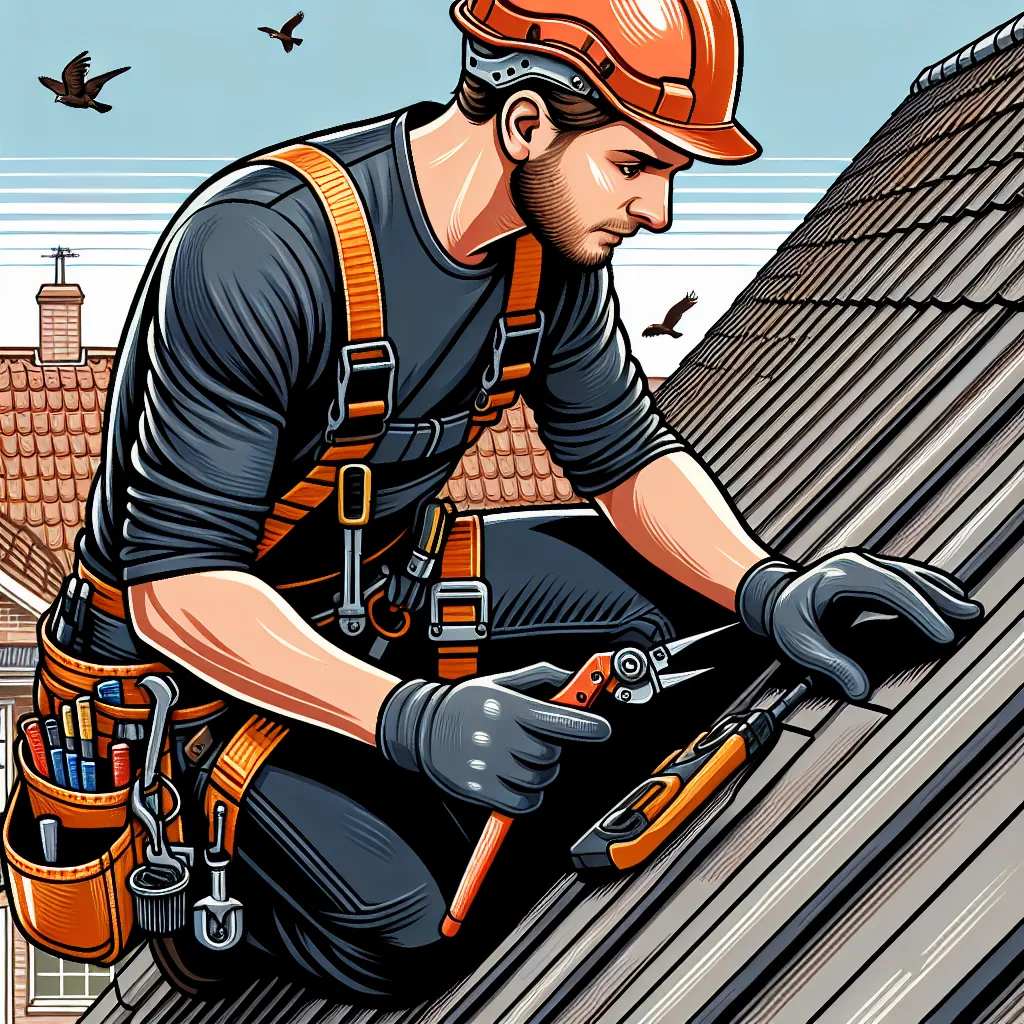We all want a roof over our heads that lasts, but finding reliable roofing contractors can feel like navigating a maze. Why is it so tough to pick the right pro for such an important job? Roofing contractors have a huge impact on the safety, value, and comfort of our homes—yet most of us know little about what makes one truly trustworthy or how to separate the gems from the duds. Let’s cut through the confusion and break down what matters most when choosing roofing contractors, without the industry fluff.
What Are Roofing Contractors and Why Should We Care?
Roofing contractors are the specialists who install, repair, and replace roofs on homes and buildings. Their work protects us from leaks, wind, and storms, and even helps lower our energy bills. One small mistake can lead to years of headaches—think water stains, mold, or a sagging roofline. That’s why choosing the right roofing contractors is as important as the roof itself.
The Real Benefits of Hiring Professional Roofing Contractors
Why not just grab a ladder and fix that shingle ourselves? Here’s what we actually gain by working with roofing contractors:
- Expertise: They know which materials work best for our climate, home style, and budget.
- Safety: Roofing work is risky. Contractors have training and gear to stay safe.
- Warranty: Many offer guarantees on their work—no sleepless nights if things go wrong.
- Speed: What could take us weeks gets done in days, rain or shine.
- Code Compliance: They handle all those annoying permits and regulations.
Table: What Sets Pro Roofers Apart
| Feature | DIY | Roofing Contractors |
|---|---|---|
| Safety Equipment | Rarely available | Always equipped |
| Material Access | Retail only | Bulk/pro-grade options |
| Warranty | None | Usually included |
| Code Knowledge | Limited | Up-to-date |
| Time to Complete | Long | Fast |
Key Drawbacks and How to Avoid Them
Not every story has a fairy tale ending. Even roofing contractors can have issues:
- Cost Overruns: Some jobs run over budget due to hidden damage. Always ask for a detailed estimate.
- Shoddy Workmanship: A few cut corners. Check their certifications and past projects.
- Communication Gaps: Frustrating when they ghost us after starting. Insist on clear timelines and updates.
- Messy Sites: Debris and nails left behind? That’s a safety hazard. Make clean-up part of the contract.
Pro Tip
Ask for references and actually call them. If they hesitate, that’s a red flag taller than a church steeple.
How to Evaluate Roofing Contractors Like a Pro
Feeling overwhelmed by choices? Here’s how we can narrow it down:
1. Check Licenses and Insurance
Don’t just take their word for it—ask for proof. Contractors should have both liability and worker’s compensation insurance.
2. Compare Written Estimates
Ask for itemized bids, not just a bottom-line number. This makes it easier to spot hidden fees or vague descriptions.
3. Review Past Work
Request photos of recent projects or addresses we can drive by. Good roofing contractors are proud to show off their work.
4. Understand Warranties
Is the warranty just on labor, materials, or both? Know who to call if there’s a problem later.
5. Ask About Crew and Supervision
Some contractors sub out everything. Who’s actually up on our roof? Make sure there’s a clear chain of responsibility.
6. Don’t Be Afraid to Negotiate
We’re not buying a loaf of bread. If something feels off, speak up or walk away.
Practical Use Cases for Roofing Contractors
Let’s talk specifics—where do roofing contractors really shine?
Emergency Repairs After a Storm
When hail or wind rips through town, they’re the cavalry, patching leaks and preventing costly water damage.
Full Roof Replacements
Old shingles curling up like potato chips? Contractors handle everything from tear-off to clean-up.
New Construction
Building a home? Roofing contractors ensure our investment is protected from day one.
Routine Inspections and Maintenance
A good contractor isn’t just for disasters. Regular checkups help us dodge big bills later.
Three Real-World Examples: Roofing Contractors in Action
1. Saving an Old Family Home
A Seattle family faced a leaking roof during a record-breaking winter. The chosen roofing contractors found not just worn shingles, but hidden rot in the decking. Instead of a quick patch, they rebuilt the affected section, preserving the home’s character and stopping the leaks for good.
2. Fast Response for a Small Business
After a windstorm, a local bakery’s roof began leaking over the ovens. Roofing contractors responded within 24 hours, tarped off the damage, and prioritized the repair to minimize business downtime. The bakery reopened within two days, losing barely any revenue.
3. Transparent Pricing Wins Trust
A homeowner in Tacoma was worried about hidden costs. The roofing contractors provided a detailed, step-by-step estimate and daily progress updates. No surprises, just clear communication. The homeowner was so relieved, they recommended the crew to their whole block.
Most-Asked Questions About Roofing Contractors
How do I know if I need to repair or replace my roof?
Look for missing shingles, leaks, or sagging. If your roof is over 20 years old, it’s probably time for a replacement.
What kinds of materials do roofing contractors recommend?
It depends on your climate and budget. Asphalt shingles are common, but metal, tile, and composite materials are gaining traction.
How long does a typical roofing project take?
Most residential jobs take two to five days, depending on the size and complexity.
Do I need to be home during the work?
Not always, but being available for questions or inspections can help avoid misunderstandings.
What should be included in the contract?
Scope of work, materials, timeline, payment schedule, and clean-up details. Always read the fine print (even if it’s boring).
How can I spot a bad roofing contractor?
Watch for high-pressure sales, vague estimates, no insurance, or poor reviews. Trust your gut—if it feels sketchy, it probably is.
What’s the average cost for hiring roofing contractors?
Costs vary by region and material, but most homeowners spend between $5,000 and $12,000 for a full replacement.
The Bottom Line on Roofing Contractors
Choosing roofing contractors isn’t just about price or a flashy website. It’s about trust, transparency, and knowing the right questions to ask. By staying informed and a little bit nosy, we protect our homes—and our wallets—from future headaches. When we find a crew that delivers quality, communicates honestly, and stands behind their work, we can finally relax every time it rains. (Just don’t forget to check for nails in the driveway before parking!)
Roofing Contractors
Roofing contractors are specialists responsible for installing, repairing, and maintaining roofs on residential and commercial properties. Choosing the right contractor is crucial because quality workmanship ensures durability, safety, and compliance with local codes.
Why Hire Roofing Contractors?
- Expertise in different roofing materials like asphalt, metal, and tile
- Safety protocols to prevent accidents
- Warranty coverage for peace of mind
- Efficiency in project completion
How Do They Compare?
| Aspect | DIY | Roofing Contractors |
|---|---|---|
| Cost | Lower upfront | Higher but includes warranty |
| Quality | Risk of errors | Professional-grade work |
| Time | Takes longer | Faster completion |
CTA: Ready to protect your home with expert roofing? Contact us today and get a free consultation to ensure your roof is in top shape!
Frequently Asked Questions About Roofing Contractors
How do I know if I need to repair or replace my roof?
Look for signs like missing shingles, leaks, or sagging. If your roof is over 20 years old, it’s probably time for a replacement.
What types of materials do roofing contractors recommend?
It depends on your climate and budget. Common options include asphalt shingles, metal, tile, and composite materials.
How long does a typical roofing project take?
Most residential roofing jobs take between two to five days, depending on the size and complexity of the project.
Do I need to be home during the roofing work?
Not always, but being available for questions or inspections can help avoid misunderstandings and ensure everything goes smoothly.
What should be included in the roofing contract?
The contract should specify the scope of work, materials, timeline, payment schedule, and clean-up details to protect both parties.






